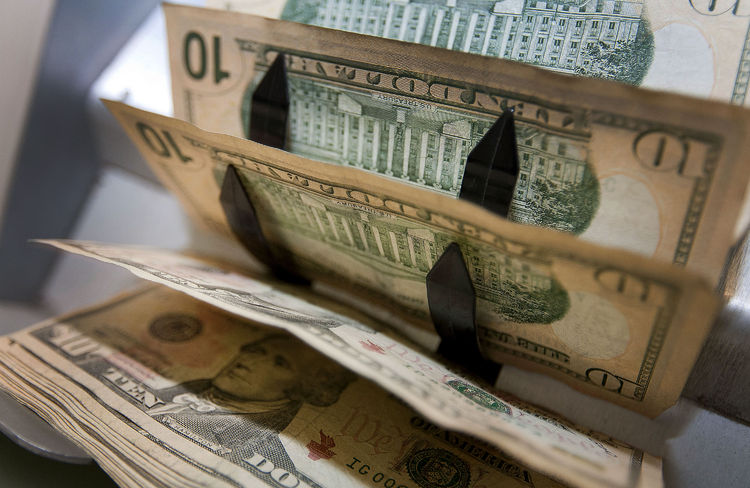- Dollar Dented by Trump’s Fed Comments
The dollar fell versus the euro and pound Tuesday after US President Donald Trump hit out at the Federal Reserve’s interest rate rises, accusing it of not backing his economic plan, while most equity markets climbed looking ahead to China-US trade talks.
The dollar, on the ascent in recent months thanks to Fed rate rises and a robust US economy, stumbled after Trump’s latest criticism of the central bank.
In an interview with Reuters published on Monday, the president said he was “not thrilled” with the rate rises under new Fed boss Jerome Powell, repeating comments made last month about the bank’s tightening measures.
“The dollar has slipped in response to President Trump’s comments, though the underlying upward trend remains intact,” VTB Capital economist Neil MacKinnon said on Tuesday.
“Most Fed-watchers are of the view that Powell is emphasising the need for financial stability and with a positive US economic backdrop is obliged to tighten policy. There is little indication that he will accede to any demands from President Trump to halt monetary tightening,” he added.
When Trump was asked if he believed in the Fed’s independence, he refused to say yes, telling the reporter: “I believe in the Fed doing what’s good for the country.”
The Fed is expected to raise rates twice more this year.
Higher-yielding and emerging market currencies — from South Korea’s won and the Indonesian rupiah to the Australian dollar and Mexican peso — also rose against the dollar Tuesday, having come under pressure last week from the Turkey financial crisis.
In his interview, Trump accused the European Union and China of manipulating their currencies, adding that Beijing was weakening the yuan to offset the effects of US tariffs.
Traders were meanwhile turning their attention to the China-US talks due Wednesday and Thursday.
The trade meeting will be the first since the world’s top two economies started imposing tit-for-tat tariffs on billions of dollars’ worth of goods, with the Wall Street Journal saying they are aimed at smoothing the way ahead of a November summit.
They also come despite Washington continuing to push through fresh measures slated for Thursday.
“Dealers are optimistic about the trade talks between the US and China, despite the less cheery tone from Washington DC and Beijing,” said market analyst David Madden at CMC Markets UK.
“The relative calm surrounding the Turkish lira is also adding to the positive mood on the continent,” he added.
In Europe, Frankfurt’s DAX 30 closed the day with a gain of 0.4 while the CAC 40 in Paris rose 0.5 percent. London’s FTSE 100 index was the odd man out, shedding 0.3 percent.
On Wall Street, the Dow added 0.2 percent in late morning trading, while the S&P 500 also rose to near the record high it set in January, as the US signalled it could delay a closely-watched decision to impose new tariffs on autos.
Commerce Secretary Wilbur Ross told the Wall Street Journal he would hold off on a final decision on whether to impose tariffs on auto imports while trade talks with Mexico, Canada and Europe are ongoing.



 Naira4 weeks ago
Naira4 weeks ago


 Naira3 weeks ago
Naira3 weeks ago


 News4 weeks ago
News4 weeks ago
 Travel4 weeks ago
Travel4 weeks ago




 Naira4 weeks ago
Naira4 weeks ago
 Naira3 weeks ago
Naira3 weeks ago


 Jobs3 weeks ago
Jobs3 weeks ago


 Travel3 weeks ago
Travel3 weeks ago




















